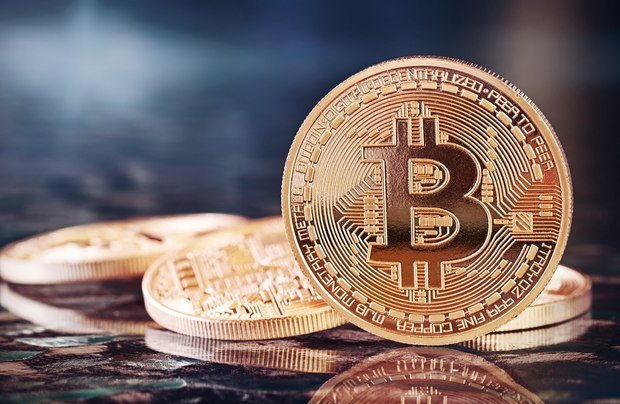''It has probably been the seventh or tenth drop in bitcoin this year''
A cryptocurrency coach about ''risky'' bitcoin purchase, making money on cryptocurrency, its legalization and the recent collapse of world's cryptocurrencies
How has the attitude towards cryptocurrencies changed in recent years? How did they buy bitcoins then and now? Why has it become more difficult to make money on the cryptocurrency? Will it be possible to bypass laws on cryptocurrency? Miner and cryptocurrency coach Evgeny Kaminsky answered these and other questions in the interview with Realnoe Vremya.
''Not every sane person will give money to every person he sees in the hope of getting cryptocurrency''
Evgeny, when and why have you become interested in cryptocurrencies?
Initially, they were of interest to me in terms of technology. Particularly about bitcoin I heard a long time ago — in 2014. That time this field seemed quite strange, it was not clear why and who needed it, there was some huge rises and falls of the rate. Rather, there were jumps, but they were not so dramatic for such a large number of people like it is now.
I bought my first bitcoin in 2016. When one of the largest bitcoin exchanges Mt. Gox was hacked in 2014 and the cryptocurrency exchange rate dropped dramatically, I thought it was time to buy. But as I understood little at that time — I remained with this thought. I did not have the time for this and postponed the purchase, however, due to the hacking of the exchange, bitcoin dropped in price significantly and this became an impulse for me. In the summer of 2016, there was another drop in the market and I wrote to my friend, ''It's time to buy'', and we safely postponed this until the autumn to return to it being more free in terms of time.
Let me note that it was quite problematic to buy bitcoin in 2016 (even in Moscow!), which required serious trust in a seller. That time no one spoke openly about the fact that he or she had bitcoins, there were no bloggers who talked about cryptocurrencies and mining. Everything was done ''in black''.
The cryptocurrencies had a little different reputation that time.
Yes, the reputation was quite different. Quite ''strange'' people were engaged in this. I remember when my friend and I decided to buy bitcoin, everything was like this: we called an exchanger, then they called us back to make sure that this was our phone number, a courier came to us, we gave him a considerable amount of money, and he left with the words, ''Just wait, it will be transferred to your wallet.''

I bought my first bitcoin in 2016. When one of the largest bitcoin exchanges Mt. Gox was hacked in 2014 and the cryptocurrency exchange rate dropped dramatically, I thought it was time to buy. But as I understood little at that time — I remained with this thought
And there was no guarantee that they would actually be transferred…
Yes, it was a meeting with maximum secrecy. The courier calls you from a hidden number, and he does not know any details — he just has a phone number and address where he should take the money. Site operators in the exchanger also may not know anything. A quite anonymous hierarchy was built, which is preserved in the exchangers to this day. Now you can come to the office, give the money, wait there until everything comes and then leave. In my opinion, the purchase of cryptocurrency is a rather bold step because not every sane person will give money to the first person he sees in the hope of getting an ''electronic currency''.
Some time later, my friend and I started mining: we went to Avito to see who the miners are, and thought that we probably also need this thing. The first time mining farm was in our office: it often broke, it was necessary to periodically buy some parts. I think, out of 100% of the time it was supposed to work, it worked only 20%. By the way, just recently we sold this mining equipment: we bought a farm for 90,000 rubles and sold for 75,000, despite the fact that it tenfold ''beat'' itself due to Ethereum mining, which has grown greatly, and did not work so much time. If we knew that Ethereum would grow so much, we would ''live'' with this farm and repair it much faster.
As far as I remember, at the beginning of 2017 there was little information on cryptocurrencies in Russian, so we had to read American publications or Chinese, but with a translator. Mass thematic sources with analytics and reviews began to appear actively in Russia somewhere in the second half of last year — that's when we organized a fairly large thematic community.
When we started — in 2016 – there was just a couple of thousand people throughout Russia who was familiar with the matter. They included those who simply owned bitcoins, but were not engaged in cryptocurrencies — by the way, they are quite a lot. For example, I was familiar with a bank's employee, who in 2011 was given one or two bitcoins as a reward for some internal project in blockchain.

''The bill has things, with which the crypto community is not ready to put up with, but it perfectly knows how to bypass them''
Evgeny, if to summarize, what particularly have attracted you in cryptocurrencies? Perhaps, you have been inspired by the idea of decentralization?
I think at first I had a scientific interest, and then, when I understood the topic, I realized that all this is very similar to the future form of exchange. This idea is still in my head: one way or another we will move to cryptocurrencies and there will be a lot of them. In 10-20 years, most likely, we will use different cryptocurrencies just as we use different banks now, and we will not care which of the cryptocurrencies we pay for food in a store.
Do you think the states will allow such scenario?
In the future, in 10-20 years, the state will not just allow such scenario — in my opinion, the dual currency basket will be replenished by crypto assets that will bring certain revenues to the state, like oil, gold, euro or dollar. In fact, the state has quite a lot of benefits from its legalization.
I think everything is moving forward with difficulty because there are several different points of view of influential ministries and people who are trying to defend their position. Time will tell which of them will be the final. According to my assessment, we will see a relevant law signed this summer.
Is the crypt really an easy way to make money?
It was so in 2017. That time it was possible not to know practically anything, to join a Telegram channel, to read there information and to earn. Now it does not work this way: now you need to start the business with good theoretical and practical knowledge of the market. I think that in the long term for the end user of cryptocurrencies everything will only be simplified, but for making money — on the contrary.
''A strong collapse by 10% happens almost every 2-3 weeks this year''
Speaking of rises and falls, last Friday most of the world's cryptocurrencies moved to a steady fall, which averaged about 10%-20%. In your opinion, what was the reason?
You know, it has probably been the seventh or tenth fall this year — almost every 2-3 weeks there is a strong collapse by 10%. If we talk about the reasons, then at that moment the market was heavily overbought — the price jumped too quickly and high, i.e. the market expects its decline. The world largest conference Consensus, which is being held in New York, has played its role. If we look at historical charts, usually before the conference the rate slightly decreases, and then after some time it rises again. Two more days of the conference are ahead — let's see what will happen to the rate. If, again, judging from historical data, this event has a very positive impact on the rate.
What do you think about the versions according to which the investigation of the financial activities of a major Korean crypto-exchange, as well as the launch of the first regulated futures by ether, is to blame for the fall?
By the way, there was also a version that Bill Gates, who spoke against bitcoin, was to blame for the fall. I think most likely these events are linked, but if we ask technical analysts, they will say that it was an expected fall — it was seen a few days before, regardless of the investigation or the activities of other people.